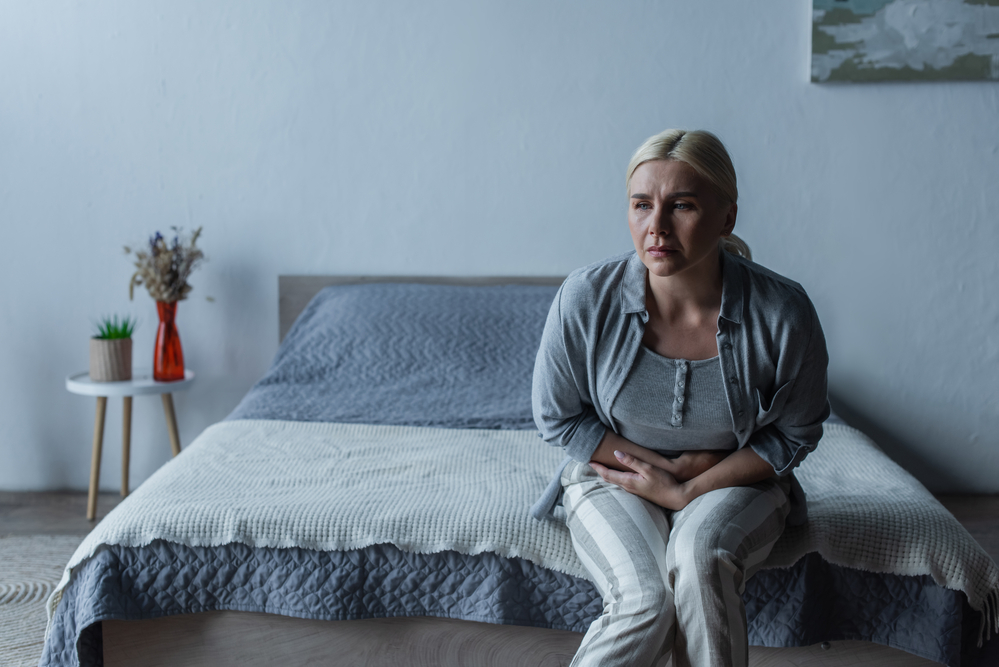News

Don’t put off tomorrow the care you need today. We are safely here for you. Click Here
Symptoms and Causes of Menopause in Women
September 21, 2022Menopause describes the stage in a woman’s life when the menstrual cycle is absent for 12 consecutive months. This period usually happens between ages 45 and 55, but can also occur earlier or later than the given age range.
What causes menopause?

Every month, one of the ovaries releases an egg cell into the reproductive tract that attaches to the uterine lining. This release of egg cells from the ovaries is triggered by the female hormone FSH (Follicle Stimulating Hormone). The released egg cell, when fertilized by a sperm, will result in pregnancy. In most cases, when the egg is not fertilized, it causes the uterine lining to shed off, resulting in menstrual bleeding. This cycle happens every month and is called the menstrual cycle.
As a woman ages, the remaining eggs become more resistant to FSH, and the ovaries significantly reduce their estrogen production. This, in effect, causes a multitude of symptoms.
Another form of menopause happens when the female reproductive organs or the ovaries are removed, resulting in the inability to menstruate. This instance is commonly referred to as artificial menopause.
Menopausal Symptoms
Vaginal dryness
This happens due to the changes in hormone production (lower estrogen production), resulting in the thinning of the vaginal wall. With the thinning of vaginal walls, fewer cells produce moisture, leading to dryness.
Hot flashes
As a woman enters the period of menopause, her internal thermostat (hypothalamus) becomes more sensitive to temperature changes. When the hypothalamus detects that her body is too warm, it sends a signal to start cooling the body down, resulting in hot flashes.
Sleep disturbances or insomnia
The secretion of melatonin (sleep hormone) is partially affected by estrogen. The reduced estrogen production affects the release of melatonin, affecting the sleep cycle of menopausing women. Other reasons for sleep disruption are hot flashes, anxiety, and depression which a woman may also experience during menopause.
Mood changes
Changes in estrogen and progesterone levels lead to altered serotonin production. Serotonin is a chemical that maintains a person’s mood, and disruptions in its production can lead to anxiety, depression, and other issues.
Weight gain
Several factors contribute to weight gain during menopause, including lifestyle choices such as diet and exercise, as well as slower metabolism caused by aging and hormonal changes.
Thinning hair and dry skin
Estrogen is a key factor in collagen and oil production in the skin. Hair thinning and dry skin is more pronounced during menopause due to declining estrogen levels.
Weaker bones (osteoporosis)
Estrogen also contributes to the maintenance of bone mass. When a woman enters menopause, there is a higher chance for her to develop osteoporosis.
Treating menopausal symptoms
Menopause is a natural process of aging. The treatment plan for menopause is geared toward providing comfort to women while preventing complications as they enter this phase of life.
Symptoms of menopause can be treated, but not all treatments are suitable for everyone. These treatment options include:
- Hormone therapy
- Lower dose oral contraceptive pills
- Lifestyle changes
- Phytoestrogens (plant-based estrogen-like hormones)
- Non-hormonal prescription medications
RAMC and Menopause
Reedsburg Area Medical Center promotes health and wellness for women who are experiencing discomforts caused by menopause. We offer various services and treatments to help ease the transition into menopause. To schedule an appointment with one of our experienced providers, please call 608-524-8611.
References:
https://my.clevelandclinic.org/
https://www.menopause.org/
